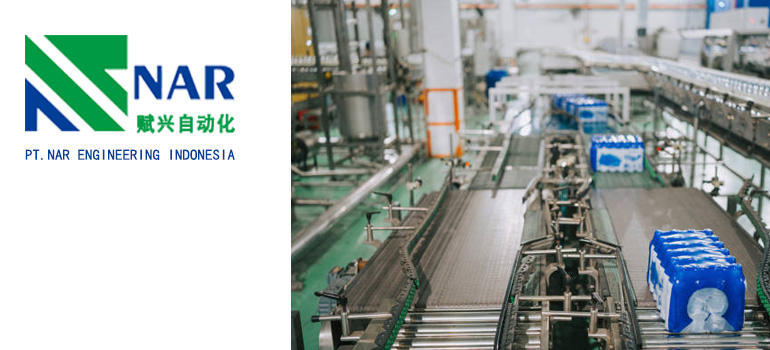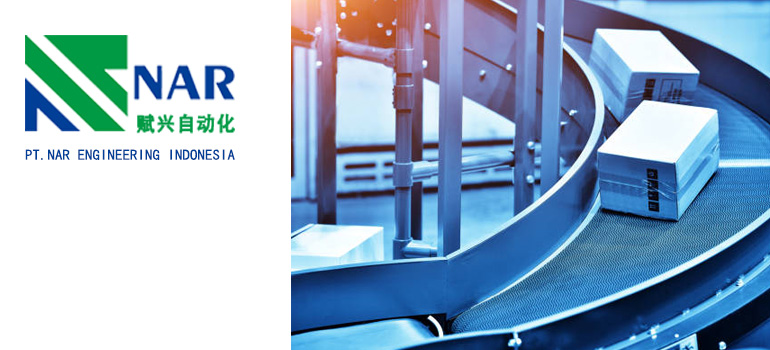Summary:
Conveyor Evolution: Embracing Eco-friendly Accessories for a Greener Future
The impact of traditional conveyor accessories on the environment
Advantages of Embracing Eco-friendly Solutions
Innovations in Material Choices for Eco-friendly Accessories
Embracing a Greener Future with Eco-friendly Conveyor Accessories
When we talk about “environmentally friendly conveyor accessories,” we directly face environmental issues, especially the negative impact of accessories used in traditional pipeline systems. Understanding why we need to shift towards more environmentally friendly choices is crucial for shaping our future path.
The impact of traditional conveyor accessories on the environment

The environmental impact of traditional pipeline system accessories is a topic worthy of in-depth exploration. These accessories are usually made of traditional materials, such as metal alloys, plastics, and rubber, which may have adverse effects during production, use, and processing.
Firstly, the production process of traditional accessories typically involves significant energy consumption and emissions. For example, the mining and processing of metals require a large amount of energy, while also producing a large number of substitutes and aluminum alloys. The manufacturing process of plastics and rubber often relies on non renewable resources such as oil, which further exacerbates the negative impact on the environment.
Secondly, the use of traditional accessories may also cause damage to the environment. For example, some metal alloys may rust or corrode, releasing harmful substances into the surrounding environment. Plastic and rubber accessories may be damaged or damaged, releasing microplastics into the surrounding environment and having a negative impact on the ecosystem.
Finally, the handling of traditional accessories is also a challenge. Many metal alloys are difficult to degrade and may require long-term disassembly, while plastics and rubber are often difficult to recover and reuse, ultimately leading to increased emissions and further exacerbating environmental pollution issues.
Therefore, understanding the environmental impact of traditional pipeline system accessories is crucial for us to recognize and shift towards more environmentally friendly choices. By adopting more environmentally friendly accessory materials and designs, we can reduce negative impacts on the environment and create a more sustainable future.
Advantages of Embracing Eco-friendly Solutions
Embracing eco-friendly solutions for conveyor accessories offers a multitude of advantages, both for businesses and the environment.
Environmental Preservation: Perhaps the most obvious advantage is the positive impact on the environment. Eco-friendly conveyor accessories are typically made from sustainable materials or recycled materials, reducing the strain on natural resources and minimizing pollution during production and disposal. By choosing these options, businesses can contribute to preserving ecosystems and reducing their carbon footprint.
Cost Savings: Contrary to the misconception that eco-friendly options are more expensive, embracing sustainable solutions can actually lead to long-term cost savings. For instance, energy-efficient conveyor accessories can reduce electricity consumption, resulting in lower utility bills over time. Additionally, some eco-friendly materials may be cheaper or more readily available than traditional alternatives, helping to lower production costs.
Enhanced Reputation: Consumers are becoming increasingly conscious of environmental issues, and they prefer to support businesses that demonstrate a commitment to sustainability. By adopting eco-friendly conveyor accessories, companies can enhance their reputation as environmentally responsible organizations, attracting environmentally conscious customers and fostering loyalty.
Compliance with Regulations: Governments and regulatory bodies are imposing stricter environmental regulations on businesses, mandating the reduction of greenhouse gas emissions, waste generation, and pollution. Embracing eco-friendly solutions ensures compliance with these regulations, minimizing the risk of fines and legal consequences.
Innovation and Differentiation: Investing in eco-friendly conveyor accessories can spur innovation within the company. Designing and implementing sustainable solutions may require creative problem-solving and collaboration with suppliers and partners, leading to the development of innovative technologies and processes. Furthermore, companies that lead the way in sustainability differentiate themselves from competitors and position themselves as industry leaders.
Employee Morale and Productivity: Employees are more likely to feel proud and motivated when working for a company that prioritizes sustainability. Adopting eco-friendly practices demonstrates corporate social responsibility and aligns with the values of many employees, leading to higher morale and increased productivity in the workplace.
In summary, embracing eco-friendly solutions for conveyor accessories offers numerous benefits, including environmental preservation, cost savings, enhanced reputation, regulatory compliance, innovation, and improved employee morale. By prioritizing sustainability, businesses can create a win-win situation for themselves and the planet.
Innovations in Material Choices for Eco-friendly Accessories
Innovations in material choices for eco-friendly conveyor accessories are driving a significant shift towards sustainability in the industry. These advancements encompass a range of materials and manufacturing processes designed to minimize environmental impact while maintaining or even enhancing performance. Here are some notable innovations:
Recycled Materials: One of the most prominent trends is the use of recycled materials in manufacturing conveyor accessories. Materials such as recycled plastics, rubber, and metals are being repurposed to create components with similar or improved properties compared to virgin materials. By diverting waste from landfills and reducing the need for new raw materials, manufacturers can significantly decrease their environmental footprint.
Biodegradable Polymers: Another promising innovation is the development of biodegradable polymers for conveyor accessories. These materials are designed to break down naturally over time, reducing the accumulation of plastic waste in the environment. Biodegradable polymers offer a sustainable alternative to traditional plastics, especially in applications where disposability is unavoidable.
Renewable Resources: Manufacturers are increasingly turning to renewable resources such as bamboo, cork, and plant-based plastics to create eco-friendly conveyor accessories. These materials are derived from sustainable sources that can be replenished naturally, reducing dependence on finite fossil fuels and minimizing carbon emissions associated with extraction and processing.
Composite Materials: Composite materials, which combine two or more distinct materials to create a new material with enhanced properties, are being leveraged to develop eco-friendly conveyor accessories. By carefully selecting and combining materials with complementary characteristics, manufacturers can create lightweight, durable, and recyclable components that outperform traditional materials.
Nanotechnology: Nanotechnology is revolutionizing material science by enabling the manipulation of materials at the nanoscale to achieve desired properties. In the context of eco-friendly conveyor accessories, nanotechnology can be used to enhance the strength, durability, and sustainability of materials. For example, nanoparticles may be incorporated into polymers to improve mechanical properties or enable self-healing capabilities, prolonging the lifespan of conveyor components.
3D Printing: Additive manufacturing, or 3D printing, is emerging as a sustainable alternative to traditional manufacturing methods for conveyor accessories. By layering materials precisely according to digital designs, 3D printing minimizes material waste and energy consumption compared to subtractive manufacturing processes. Additionally, 3D printing enables on-demand production and customization, reducing inventory and transportation-related emissions.
These innovations in material choices for eco-friendly conveyor accessories demonstrate the industry’s commitment to sustainability and continuous improvement. By embracing these advancements, businesses can reduce their environmental impact while meeting the growing demand for sustainable solutions in the market.
Embracing a Greener Future with Eco-friendly Conveyor Accessories
Embracing a greener future with eco-friendly conveyor accessories is not just a choice; it’s a necessity in today’s world. As industries worldwide face increasing pressure to reduce their environmental footprint, the adoption of sustainable practices and products is becoming imperative. Here’s how embracing eco-friendly conveyor accessories can pave the way for a greener future:
Reduced Environmental Impact: Eco-friendly conveyor accessories are designed with sustainability in mind, utilizing materials and manufacturing processes that minimize resource consumption and environmental pollution. By choosing these accessories, industries can significantly reduce their carbon emissions, water usage, and waste generation, contributing to the preservation of our planet’s delicate ecosystems.
Energy Efficiency: Many eco-friendly conveyor accessories incorporate energy-efficient technologies and designs, helping industries reduce their overall energy consumption. Whether it’s through the use of lightweight materials, friction-reducing coatings, or regenerative braking systems, these accessories can optimize energy usage and lower operational costs while minimizing greenhouse gas emissions.
Resource Conservation: Traditional conveyor accessories often rely on finite resources such as metals and fossil fuels, contributing to resource depletion and environmental degradation. In contrast, eco-friendly accessories prioritize the use of renewable or recycled materials, conserving valuable resources and reducing reliance on unsustainable extraction practices.
Compliance and Reputation: Embracing eco-friendly practices demonstrates a commitment to corporate social responsibility and environmental stewardship, enhancing the reputation of businesses in the eyes of consumers, investors, and regulatory bodies. By aligning with sustainability goals and standards, industries can stay ahead of regulatory requirements and strengthen their position in the market.
Innovation and Collaboration: The shift towards eco-friendly conveyor accessories fosters innovation and collaboration within industries. Manufacturers, suppliers, and end-users collaborate to develop cutting-edge technologies and solutions that prioritize sustainability without compromising performance. This spirit of innovation drives continuous improvement and sets the stage for future advancements in green technology.
Long-Term Cost Savings: While the initial investment in eco-friendly conveyor accessories may be higher than traditional alternatives, the long-term benefits outweigh the upfront costs. Reduced energy consumption, lower maintenance requirements, and extended product lifespans contribute to significant cost savings over time, making eco-friendly solutions economically viable in the long run.
Educational Opportunities: Embracing a greener future with eco-friendly conveyor accessories provides educational opportunities for employees, customers, and stakeholders. Through training programs, workshops, and outreach initiatives, industries can raise awareness about sustainability issues and inspire positive change within their organizations and communities.
In conclusion, embracing eco-friendly conveyor accessories is essential for building a greener, more sustainable future. By prioritizing environmental conservation, energy efficiency, resource conservation, and innovation, industries can pave the way for a more sustainable tomorrow while reaping the numerous benefits of eco-friendly practices.

